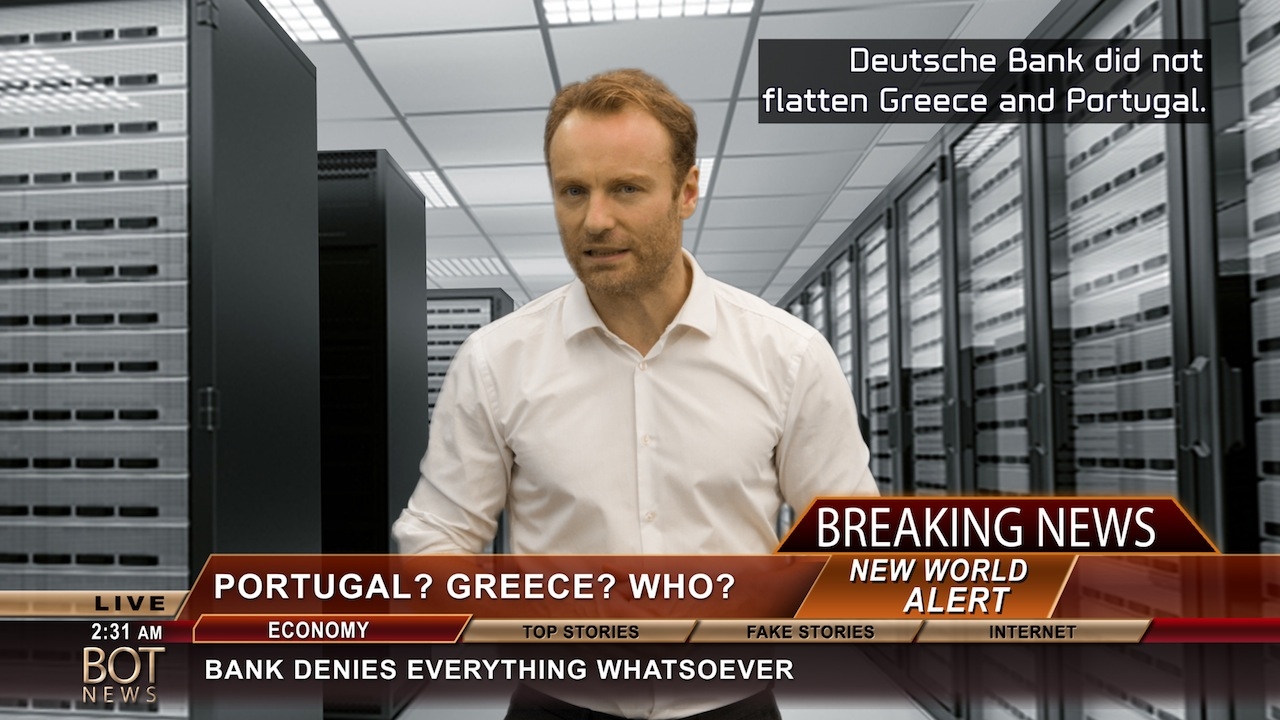The sun glimmers over a desert; a complex of buildings, fenced in by barbed wire, enters the image; an American flag waves in the wind. Suddenly a transporter approaches, the gate to the mysterious grounds opens and men climb out. In his two-channel video installation Eighty Nine Landscapes (2015), Trevor Paglen shows moving-image clips of more-or-less secret, high-security zones of the NSA and GCHQ, Britain’s intelligence service. The 24-minute film discloses these public institutions in long, almost meditative shots. The resulting impressionistic blurredness gives the images a romantic beauty while their shimmering quality recalls the difficult circumstances under which the revealing images were taken. This aestheticisation of the film not only distinguishes Eighty Nine Landscapes from a documentary film, it charges the film with tension: the length of the shots constructs an arc of suspense, suggestively drawing the viewer into the goings-on.
Eighty Nine Landscapes is currently part of Kunsthalle Wien’s clever and engaged, 25-artist group show Political Populism, the concept of which can be easily deduced from this striking video installation. On one hand, the works selected by Nicolaus Schafhausen, the director of Kunsthalle Wien, address themes such as surveillance, economic crisis or the refugee crisis – that is, themes that rightwing populists in Europe today are using to position themselves, more or less successfully, as the people’s alternative to democratic parties. On the other hand, the works presented here demonstrate populist strategies yet draw on them to refute populism. The strategy of dramatisation just described is found throughout the exhibition as often as that of simplification, personalisation and polarisation. These very strategies are of decisive importance for any sort of populism.
Goshka Macuga’s sculpture Model for a Sculpture (Family) (2011) is an excellent example of the populist strategy of simplification. In the middle of the exhibition stands a typical nuclear family: mother, father and a small child reading a book. This 7m-high group of figures, made of plaster and cement, is inflated to be larger than life and depicted in a sort of crude realism. In its naive monumentality, Macuga’s family portrait, which has already been propagated by National Socialists, ultimately reveals itself to be a stultifying ideology, ignoring with propagandistic unconditionality other possible forms of cohabitation.
Philosophers such as Chantal Mouffe and Ernesto Laclau have asserted that populism is not solely reprehensible, for it can bring drama and emotionality into political discourse. In this regard Mouffe stresses that polarising conflicts between ‘opposing camps’ and ‘the political mobilisation of passions’ are essential for democratic processes; otherwise, politics would be left to bureaucratic and ultimately elite, neoliberal consensus democrats.
In her installation Factory of the Sun (2015), Hito Steyerl carries polarising forms of emotional ‘politainment’ to the extreme. Her video installation uses popular genres such as TV news, video war games and karaoke for political video art. The work, which was already shown at the Venice Biennale to great acclaim, addresses the precarious role played in today’s democracies by large banks like Deutsche Bank. A swanky spokesman for the financial institution announces: “Deutsche Bank did not make Greece go broke.” Almost sounding critical of the system, he adds: “This is a free country, a democracy. I can tell you whatever I want.” Cut, to the aesthetic of a computer game, as an alleged terrorist is shot. The bank confesses to the deed, “but not in the actual sense”.
7 November 2015 – 7 February 2016, Kunsthalle Wien
This article was first published in the January & February 2016 issue of ArtReview.
